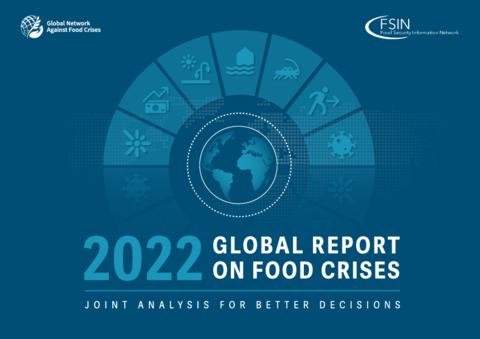2022 Global Report on Food Crises

Global Network Against Food Crises, an international alliance, working to address the root causes of extreme hunger, published its 2022 Global Report on Food Crises (GRFC 2022). The sixth edition of the report is divided into three chapters: a global overview of food crises, regional overviews of food crises in 2022, and the major food crises in 2022 with a description of the situation in specific countries.
The report reveals that the world is once again on the verge of a global food crisis. The number of people facing acute food insecurity and requiring urgent life-saving food assistance and livelihood support continues to grow at an alarming rate. The key factors responsible for rising acute food insecurity in 2021 were: conflict, weather extremes, and pre-existing and COVID-19-related economic shocks.
The report focuses on the territories where the magnitude and severity of the food crisis exceed the local resources and capacities. The support of the international community is necessary in such cases. According to the report, around 193 million people in 53 countries or territories experienced acute food insecurity at crisis or worse levels in 2021 (almost 40 million more than in 2020). Over half a million people face starvation and death, the majority of them in four countries: Ethiopia, South Sudan, southern Madagascar and Yemen.
UNICEF Executive Director, Catherine Russell, referred to the report, highlighting that inadequate nutrition is a leading cause of child mortality. “This report shows clearly - and urgently - that we need to reignite that global effort”, she said. She also called for five key actions to help children suffering from the food crisis, protecting access to nutritious, safe, affordable, and sustainable diets and scaling up social protection systems to help the most vulnerable families.
The full text of the report is available here.
The Global Network Against Food Crises is an alliance of humanitarian and development actors working together to prevent, prepare for and respond to food crises and support the Sustainable Development Goal to End Hunger (SDG 2), founded by the European Union, FAO and WFP in 2016.

